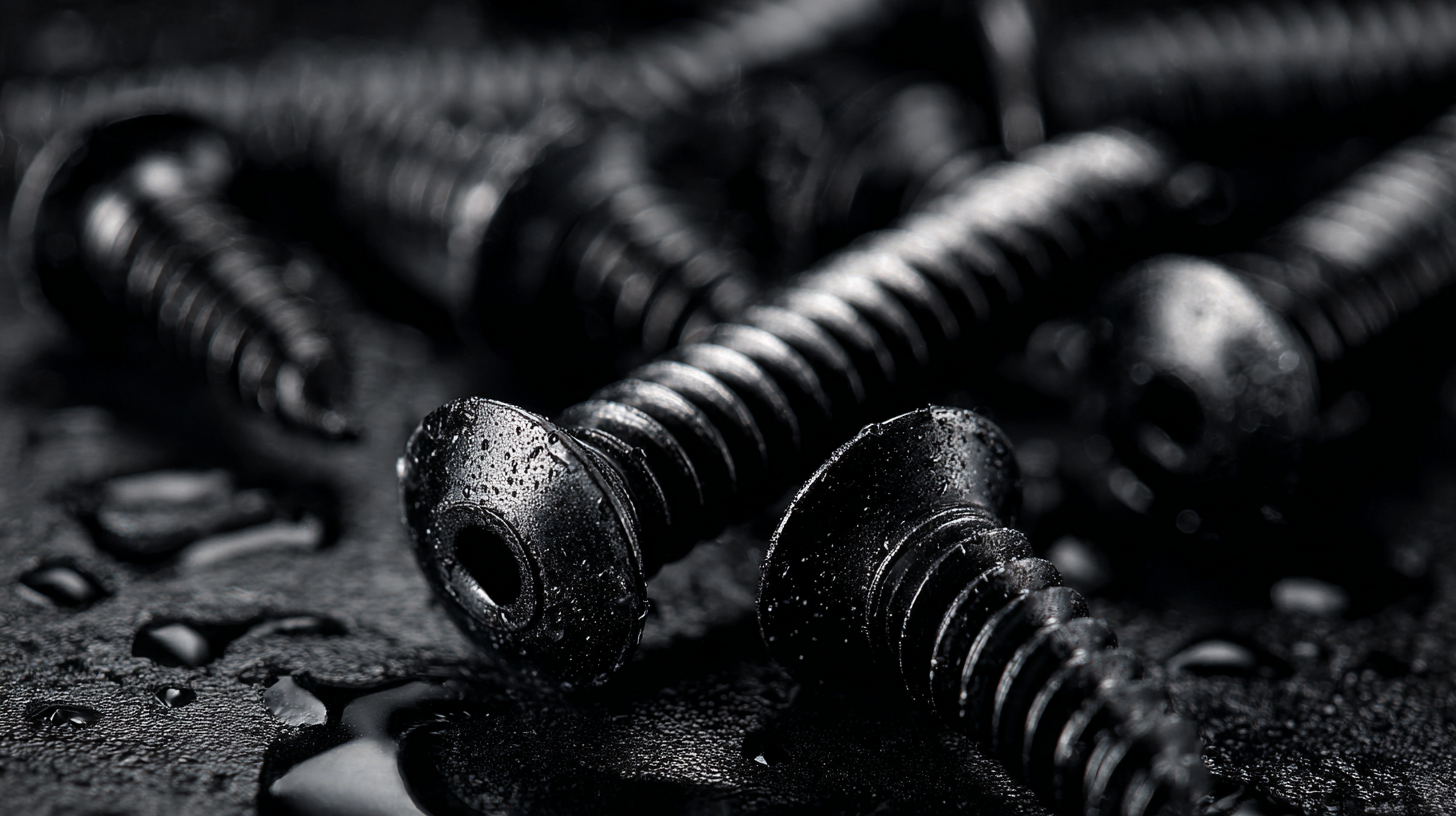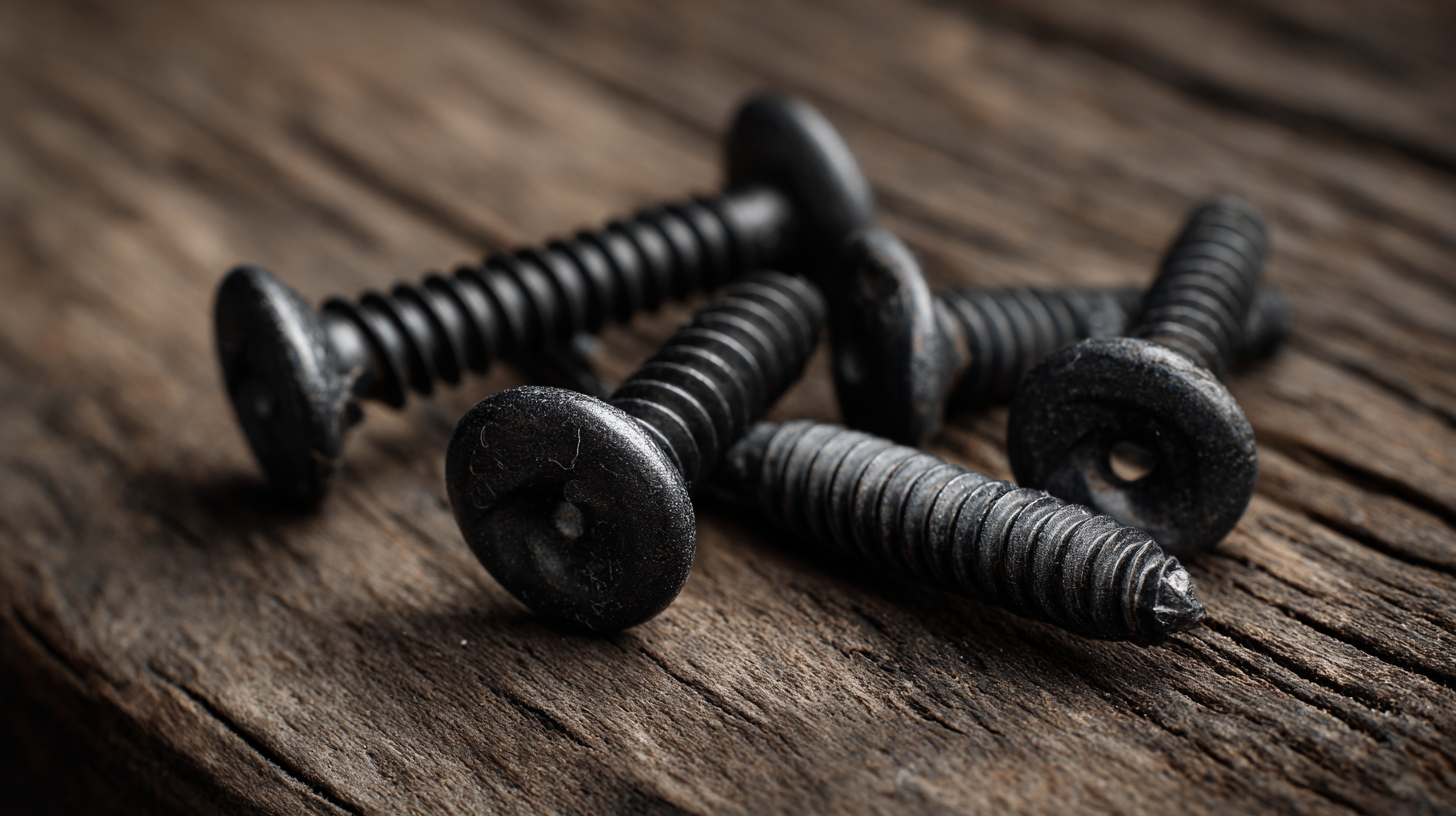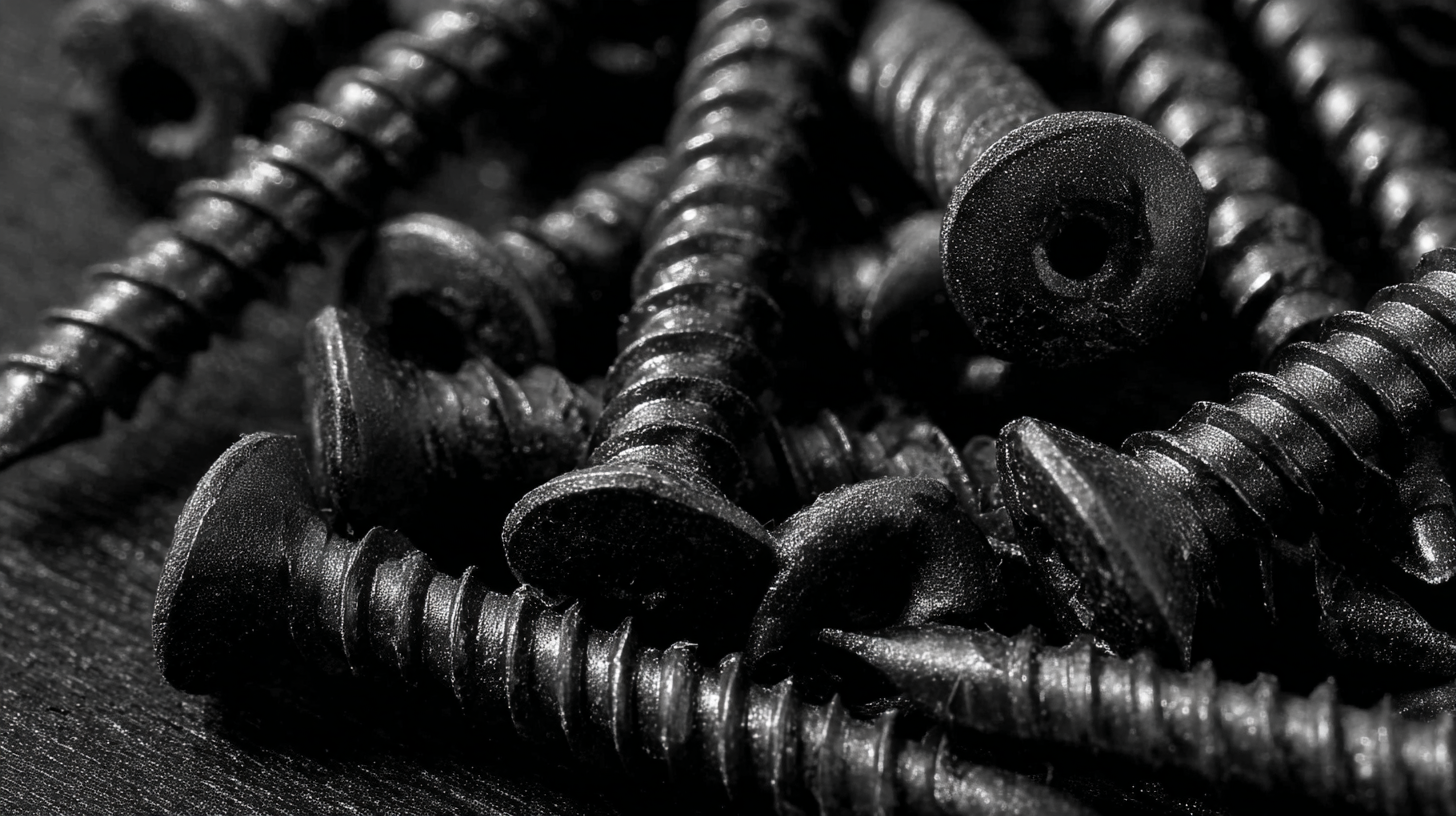In the world of construction and DIY projects, selecting the right fasteners is crucial for ensuring durability and aesthetics. Black screws, with their sleek appearance and corrosion resistance, have gained significant popularity across various industries. According to a recent report by the Fastener Distributor Index, black screws account for nearly 15% of the fastener market, underscoring their increasing demand among professionals and hobbyists alike. Whether you're working on cabinetry, decking, or metal fabrication, the choice of black screws can greatly influence the overall outcome of your project. This guide will explore eight essential tips to help you choose the best black screws tailored to your specific needs, ensuring your work not only stands up to time but also looks exceptional.

As we look ahead to 2025, the demand for black screws is projected to experience significant growth across various industries. The aesthetic appeal and versatility of black screws make them a popular choice for both construction and DIY projects. Whether it’s for furniture assembly, cabinetry, or automotive applications, these screws provide a sleek finish that blends seamlessly with a range of materials. Understanding the factors driving this demand is essential for both consumers and manufacturers alike.
One of the key drivers of market demand is the increasing popularity of contemporary design trends that favor darker hardware for a minimalistic look. As more homeowners and businesses opt for black fixtures to enhance their interiors, the need for high-quality black screws will follow suit. Additionally, advancements in coating technologies, such as black oxide and zinc plating, are improving durability while catering to the aesthetic preferences of designers. This evolution in product development not only meets consumer needs but also opens new channels for innovation in the fastener industry as we move into 2025.

When selecting the best black screws for your projects, several key factors influence their quality and performance. One of the most critical aspects is the type of material used. High-carbon steel screws tend to offer better strength and durability, making them suitable for high-stress applications. Additionally, knowing the coating type is essential, as various finishes can enhance corrosion resistance, ensuring longevity even in harsh environments.
**Tip 1**: Always consider the tensile strength of the screws. A higher tensile strength indicates a better ability to withstand loads, which is crucial in construction and heavy-duty applications. According to recent industry reports, the automotive fasteners market, valued at approximately USD 21.61 billion in 2024, emphasizes the consumer's demand for robust fastening solutions.
**Tip 2**: Evaluate the screw’s threading and design. The right thread configuration can significantly enhance the screw’s grip and stability in various materials. In applications like orthopedic miniscrews, for instance, the stability largely hinges on factors like bone quality, which parallels the importance of choosing the right screw design for optimal performance. By paying attention to these details, you can ensure your project is well-supported and reliable.
| Tip Number | Key Factor | Description | Quality Indicator |
|---|---|---|---|
| 1 | Material | Select screws made of high-carbon steel for better tensile strength. | High tensile strength |
| 2 | Coating | Look for screws with anti-corrosive black oxide coating. | Corrosion resistance |
| 3 | Thread Design | Choose screws with design suited for your application, like self-tapping or drywall screws. | Application suitability |
| 4 | Head Type | Select the right head type (flat, round, hex) based on your project requirements. | Compatibility with tools |
| 5 | Length | Ensure the screws are the right length for the materials being fastened. | Secure fastening |
| 6 | Diameter | Select the appropriate diameter for load-bearing capabilities. | Load capacity |
| 7 | Brand Reputation | Choose brands known for quality and reliability. | Trustworthiness |
| 8 | Cost | Analyze cost vs quality; cheaper options may compromise performance. | Price-performance ratio |
When it comes to selecting black screws for your projects, understanding the essential types available can significantly impact the outcome of your work. There are primarily three types of black screws to consider: black oxide screws, black zinc screws, and powder-coated screws. Each type is designed for specific applications, serving different aesthetic and functional needs.
Black oxide screws provide a sleek appearance alongside moderate corrosion resistance. They are often chosen for indoor projects or applications where aesthetics matter. Conversely, black zinc screws are coated for enhanced protection against rust and are ideal for outdoor use. Their finish not only adds durability but also preserves the integrity of the screw over time. Lastly, powder-coated screws come in various colors and shades, allowing for greater customization and are best suited for projects where color matching is crucial, such as with appliances or furniture.
Choosing the right type of black screw for your project is more than just a functional decision; it can also elevate the overall design. Tailoring your choice to the specific requirements of your work will ensure both longevity and visual appeal, making your projects stand out.
When selecting black screws for your projects, evaluating the coating and corrosion resistance is crucial to ensure longevity and performance. The most common coatings used on black screws include black oxide and electroplated black finishes. The differences in these coatings can significantly affect the screws' resistance to rust and wear. According to a report from the Industrial Fasteners Institute, screws with black oxide treatment can provide moderate corrosion resistance, but they are not recommended for outdoor applications without further protection. In contrast, electroplated black screws often come with a zinc coating, which enhances their durability against environmental factors, demonstrating superior resistance to corrosion in harsh conditions.

Moreover, it’s essential to consider the environment in which the screws will be used. A study by the American Society for Testing and Materials indicates that black screws exposed to moisture and salt can corrode within a short period if they lack adequate protective coatings. For example, composite materials combined with paint or powder coatings can significantly improve performance ratings in corrosive environments, ensuring that the screws retain their integrity over time. Therefore, choosing the right coating based on the intended application of the black screws will not only optimize their performance but also prolong the lifespan of your projects.
When selecting black screws for your projects, cost-effectiveness is a crucial factor that requires careful consideration. A report by the Industrial Fasteners Institute highlights that approximately 70% of construction projects experience budget overruns, often due to unforeseen material costs. This emphasizes the need for balancing quality with affordability. While cheaper screws may seem appealing, they can compromise on durability and lead to additional expenses in the long run, such as repairs or replacements.
Investing in high-quality black screws can save you money over time. According to a study by the American Institute of Steel Construction, the failure rate of low-quality fasteners can exceed 30% in demanding environments. Therefore, opting for reliable brands that offer corrosion resistance and superior tensile strength not only enhances the longevity of your projects but also minimizes the risk of costly failures. In the competitive landscape of fasteners, evaluating the long-term cost implications can lead to more informed decisions, ensuring your projects remain within budget while maintaining high-quality standards.
